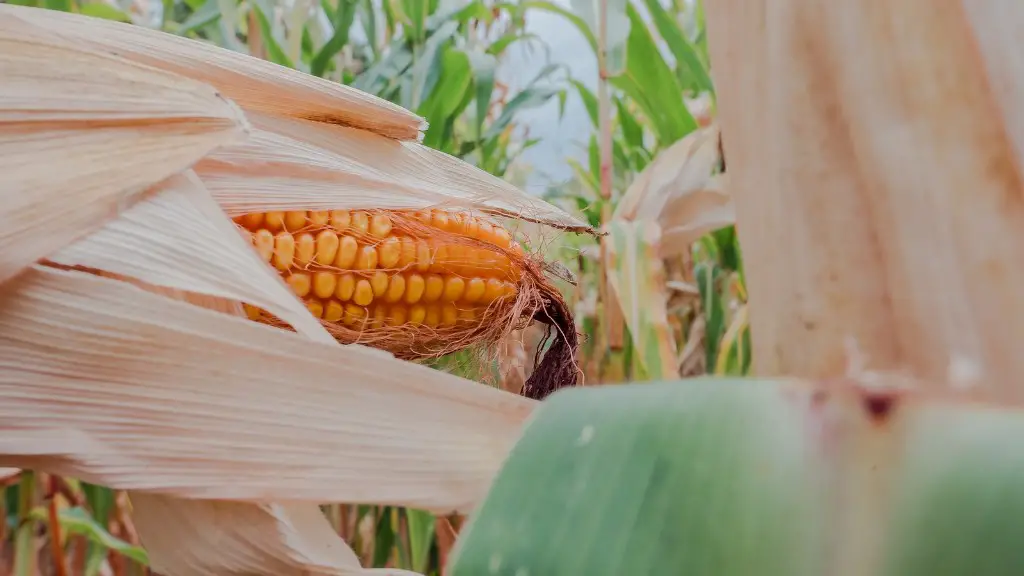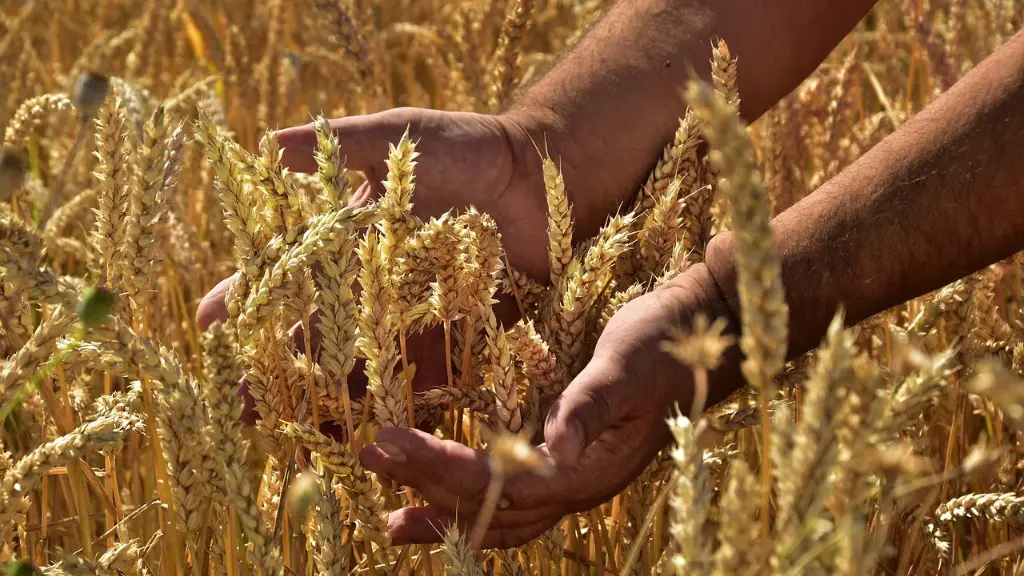Agriculture departments are responsible for overseeing the production, distribution and sale of food and agricultural products. They set standards for agricultural production and oversee the quality of agricultural products and services. They also monitor the growth of agricultural businesses, and work with farmers to improve their yields and increase productivity. In addition, they provide training and support to rural communities and promote agricultural development. The department also serves as a liaison between the federal government and the agricultural sector.
Agriculture departments aim to ensure food security and nutrition for local communities. They also encourage sustainable development in rural communities by focusing on food production and conservation, as well as health and safety regulations for agricultural products. As part of their duties, they also provide financial aid to emerging and established agricultural businesses. Lastly, agriculture departments may provide agricultural extension services, such as in-field assistance to boost crop yields, and research and development to support ongoing innovation.
Agriculture departments also strive to provide educational opportunities and career guidance to individuals interested in the agriculture industry. They develop initiatives to inspire youth to pursue careers in the field, expand their knowledge on current trends, and inform the public on related issues. Agriculture departments may provide subsidies to farmers and advise them on production and marketing strategies. Furthermore, they are responsible for enforcing government regulations to protect the food safety of consumers and enhance agricultural productivity.
Agriculture departments work diligently to support the economic sustainability of agricultural businesses, enhance rural economic development, and promote agricultural investments. They strive to improve risk management strategies, create opportunities for agro-tourism, and support youth-led initiatives to encourage agricultural science and development. Additionally, the department works to protect the environment and wildlife through innovative conservation practices.
The overall objective of an agriculture department is to create a conducive environment for farmers, agricultural businesses and rural communities. They seek to preserve the agricultural industry, support sustainable development, and ensure food security and nutrition for citizens. Ultimately, the department helps to ensure the continuity of the agricultural sector and communities.
Regional Development
Agriculture departments are committed to assisting rural communities with economic development initiatives. For example, they may fund projects that support local infrastructure development and help individuals access additional financing to purchase land or expand their businesses. Additionally, they may provide direct assistance to communities to help rebuild infrastructure, such as roads and other essential services.
Agriculture departments may also provide programs that facilitate job creation in rural areas. These can include providing technical and financial support to farmers, entrepreneurs and small businesses. Additionally, departments may assist with the establishment of farmers’ markets, food outlets and agricultural cooperatives. By doing this, the department helps to reduce poverty and create economic opportunities for citizens in rural communities.
Agriculture departments are also responsible for preserving and protecting land resources for sustainable use. They strive to promote soil conservation and water management practices to reduce the impact of desertification and drought. Furthermore, they may facilitate the development of protected areas and promote agricultural production in areas prone to natural disasters.
Finally, agriculture departments may support research and development projects to increase agricultural productivity and promote nutritional food production. By developing technologies and processes to increase sustainability of the sector, they may reduce the environmental impact of agriculture while improving crop yields. As a result, agricultural departments can support the long-term sustainability of rural communities.
Environmental Conservation
Agriculture departments are also committed to protecting the environment. Their responsibilities include developing policies that help to reduce greenhouse gas emissions and waste. In addition, they may set up initiatives to conserve water and buffer zones to protect wildlife and habitat conservation. Furthermore, they may help to establish renewable energy sources and encourage agricultural waste recycling.
Agriculture departments may also develop regulations to ensure the safe use of biotechnology and chemicals in farming. Additionally, they may encourage the use of organic or sustainable agricultural practices. By doing this, agricultural departments can help to preserve the ecological balance and protect the environment.
In addition, departments are responsible for managing the use of land resources to prevent over-exploitation. By developing comprehensive land-use plans and land management policies, they can ensure that agricultural lands are efficiently and sustainably utilized. Additionally, they may partner with local governments to introduce and enforce regulations that are aimed at protecting soil quality and preserving forests and wetlands.
Agriculture departments may also offer grants and other incentives to agricultural businesses and rural communities to support the introduction of environmental friendly practices. By providing these resources, they can reduce water pollution and the use of hazardous chemicals and pesticides in farming, thereby improving the quality of agricultural products.
Lastly, they may facilitate collaboration between farmers, government and non-governmental organizations to promote sustainable production and conservation. By working with local organizations, they can develop agricultural practices that are tailored to local needs and help to preserve the natural landscape of a community.
Social Impact Strategies
Agriculture departments are responsible for promoting the wellbeing of rural communities. They may promote responsible agricultural development to ensure food security, nutrition, and economic opportunities for citizens. Furthermore, they may collaborate with local governments and community members to support initiatives that reduce poverty and improve educational and health outcomes.
Agriculture departments strive to create partnerships between government and agricultural businesses to foster sustainable production and market-driven solutions. They may also work with farmers’ organizations, local institutions, and non-governmental organizations to encourage business start-ups and job creation. Furthermore, they may provide incentives to promote food processing, storage, and marketing strategies, and encourage the development of agro-tourism and value-added products.
Agriculture departments may also assist in providing financial resources to support rural development. This may include subsidizing production inputs and processing, as well as providing technical assistance to individuals to help them access markets for their products. Additionally, departments may create and enforce safety and health regulations to protect farmers and consumers, and provide training and education to agricultural businesses and communities.
Finally, agriculture departments seek to increase awareness of agriculture and rural development by launching marketing campaigns and educational outreach initiatives. They may also provide grants to encourage youth and female participation in the agriculture sector, and offer apprenticeship and other training and capacity building programs.
Government Regulations
Agriculture departments are responsible for enforcing federal and state policies and regulations related to agricultural production and marketing. They may monitor and inspect agricultural practices to ensure compliance with food safety, environmental protection, and animal welfare laws and regulations. Additionally, they may oversee the sale and distribution of agricultural products and advise on trade-related activities.
Agriculture departments also monitor and enforce quality control standards for agricultural products. By doing this, they strive to protect the safety and quality of agricultural commodities and ensure that consumers are provided with safe and nutritious foodstuffs. Furthermore, departments may create and regulate licenses and permits for agricultural activities.
In addition, agricultural departments may support the development of agricultural standards and marketing practices. This may include providing advice on production methods, compliance with export regulations, crop rotation practices, and other agricultural best practices. Furthermore, they may collaborate with research and development centers to initiate research projects on soil conservation, pest management, and water management.
Agriculture departments are also responsible for controlling the prices of agricultural products by setting production, transportation, and other related costs. Finally, they may work in partnership with other agencies to develop marketing strategies and policies that support the long-term sustainability of agricultural businesses.
Agricultural Extension Services
Agriculture departments often provide extension services to support agricultural businesses and communities. This may include offering individualized instruction, workshops, and other forms of assistance to farmers, entrepreneurs and agricultural businesses. The department may also host field days, industry-focused conferences, and other events to increase agricultural outreach and knowledge.
Agriculture departments also strive to provide technical assistance and on-site support to farmers, entrepreneurs and other individuals. This may include providing advice on various aspects of agricultural production, such as pest management, fertilization, and irrigation. Additionally, department employees may conduct soil tests and provide general and specific advice on the use of new technologies, such as genetically modified organisms.
Department staff may also provide access to financial assistance and other resources to help individuals start agricultural businesses. Furthermore, they may coordinate with agricultural producers, processors, and marketers to explore marketing opportunities and develop linkages between producers and potential buyers. Additionally, they may create and coordinate agricultural research and development projects, and advise on conservation techniques and methods.
Finally, the department may train farmers and agricultural workers on food safety and nutrition, and promote agricultural best practices. Through these activities, they can promote a safe and healthy food system, while also encouraging sustainable agricultural production.





